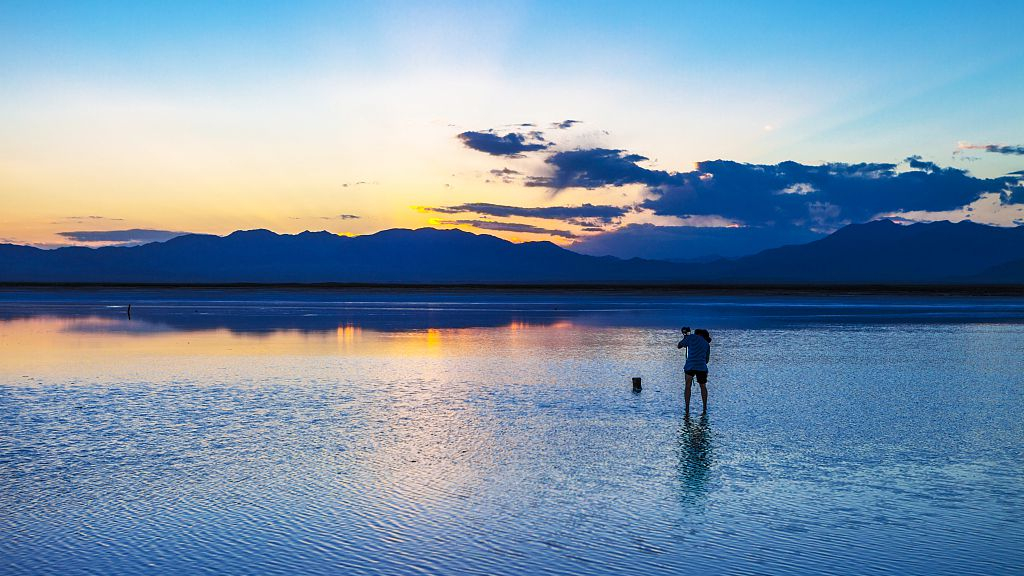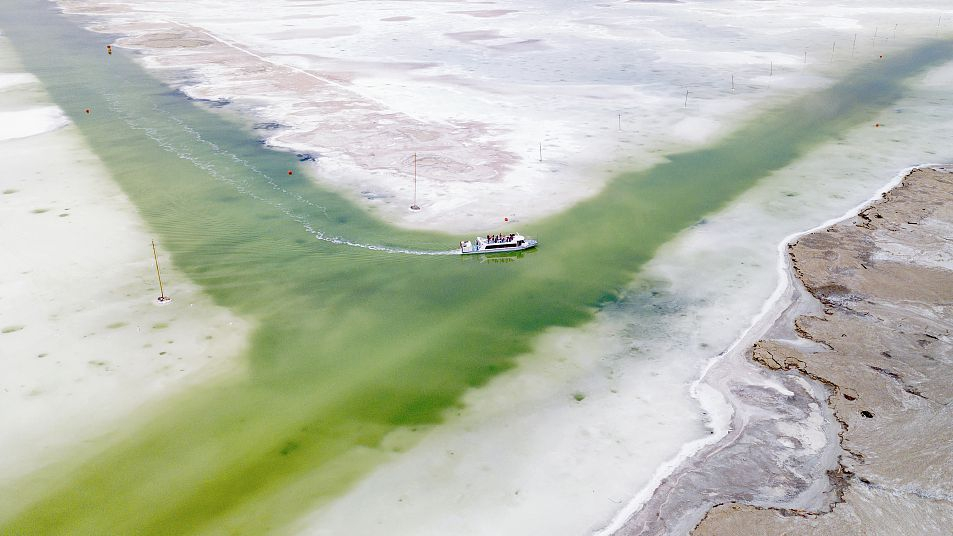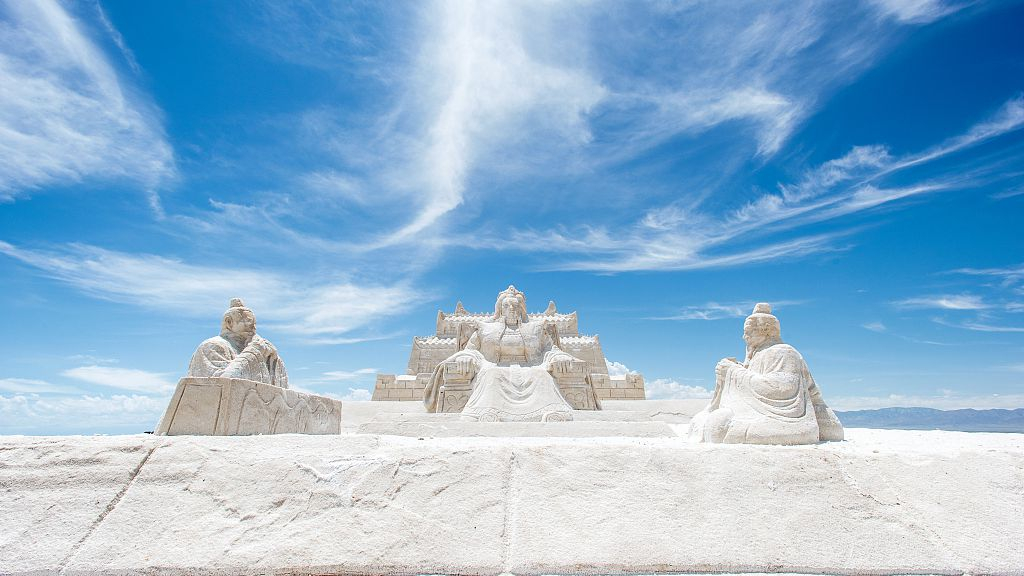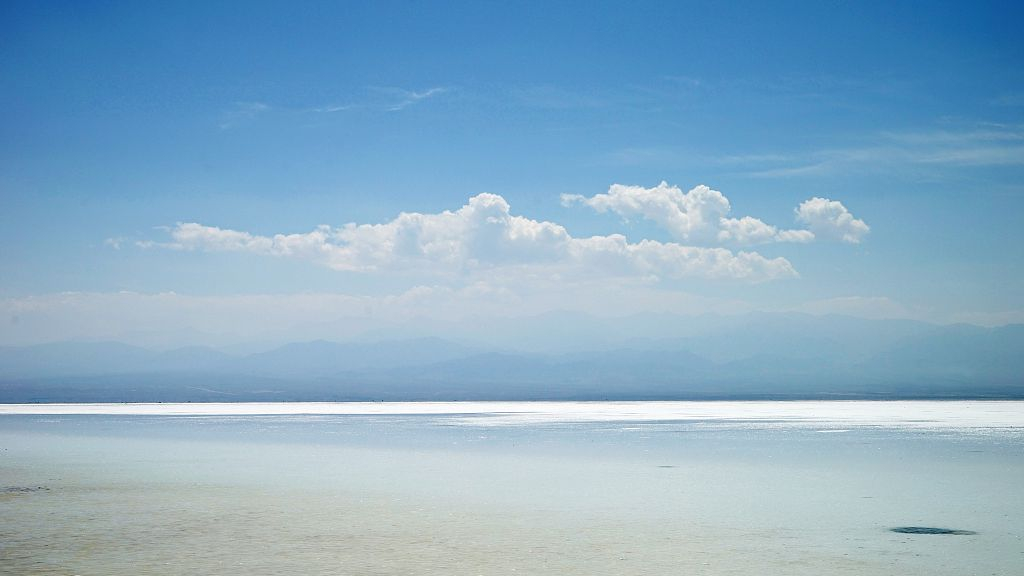
Destination
15:21, 08-Feb-2019
Yuncheng Salt Lake, China's Dead Sea
Updated
16:32, 08-Feb-2019
Geng Siyuan

Unlike humans, for whom aging is a one-way road, with financing and a steady plan of development, Yuncheng City is determined to sustain the beauty of its salt lake to stand the test of time.
Located at the southern end of north China's Shanxi Province, Yuncheng City is well known. For those familiar with the famous Chinese novel "Romance of the Three Kingdoms," it is home to one of the book's, and Chinese history's, most loyal and decorated generals, Guan Yu (220-280 AD), and its salt lake is known as China's Dead Sea.

Yuncheng Salt Lake in Shanxi Province, north China. /VCG Photo
Yuncheng Salt Lake in Shanxi Province, north China. /VCG Photo
Salt production and shrimp breeding are the two main revenue-generating businesses of the salt lake. For a short time, its beauty suffered from a battle between the production of edible salt and industrial salt. However, as a natural beauty, the lake will not let go of the opportunity to bring back its old glamour and establish its own tourism brand.
Around 1,300 years ago, ancient Chinese people created a five-step production method of making edible salt, which has since been passed down from “shifu” (experienced craftsman) to apprentices, generation to generation, keeping the lake as beautiful as it was. Water from the lake was sunbathed, filtered, stored, crystallized and shoveled as a finished product, all by manual labor.
However, this traditional method of edible salt production was stopped in the 1980s, as it lacked heirs and apprentices to carry on the craft and the physical demands placed on workers became too high. But more importantly, it was a result of decades of industrial salt exploitation since the 1940s. With innovative techniques that freed human laborers from physically demanding work and extended sun exposure, it was reclaimed in 2010 to meet market demands of salt for medical use. The traditional five-step method was enlisted as an intangible cultural heritage in China in 2014.
The shrimp business is going strong. In 2018, brine shrimp sales hit 16.78 million yuan (about 2.5 million U.S. dollars), which is helping local people to lead a better life.

An aerial view of Chaka Salt Lake in Qinghai Province, northwest China. /VCG Photo
An aerial view of Chaka Salt Lake in Qinghai Province, northwest China. /VCG Photo

Salt sculptures at Chaka Salt Lake. /VCG Photo
Salt sculptures at Chaka Salt Lake. /VCG Photo

China's "Mirror of the Sky," Chaka Salt Lake. /VCG Photo
China's "Mirror of the Sky," Chaka Salt Lake. /VCG Photo
Unlike Chaka Salt Lake in northwest China's Qinghai Province, which is known for its natural beauty and highly developed tourism business, Yuncheng Salt Lake needs to work a bit harder to sustain itself.

SITEMAP
Copyright © 2018 CGTN. Beijing ICP prepared NO.16065310-3
Copyright © 2018 CGTN. Beijing ICP prepared NO.16065310-3